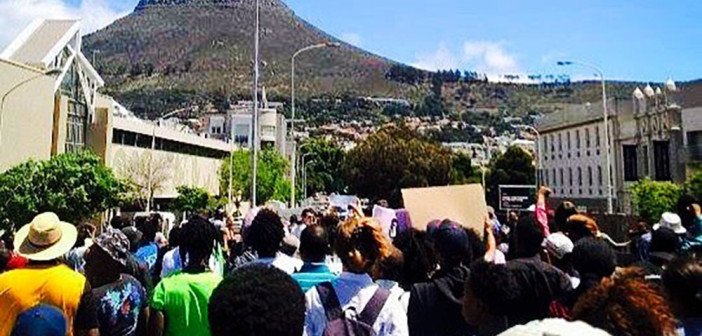Recently in South Africa, students protested an increase in student fees at a university — and won.
Yep, that’s right. Students took to the streets throughout the week and protested an announced increase in university fees. An 11 percent increase is what was proposed.
News magazine The Week called the increases “reminiscent of apartheid policies,” because it would have prevented poorer black students from being able to get an education.
By comparison, most of North Central College’s tuition increases have been a little less than half that percentage.
In South Africa there were protests, but none were more disruptive than the march from universities in Capetown to Parliament. Cars were simply not allowed to pass by the marching human wave.
Rachel Benjamin, a Junior College student at the University of Capetown who participated in the protests for three days, said, “The protests are insane, they have been so powerful.”
Benjamin also agrees that “Inequality has been a constant in South Africa for most of history and the fee increase is just another way to exclude marginalized students.”
News media outlets were quick to point out that some of the more violent protests did not stop after the president’s announcement.
Benjamin said, “No one I know was injured, but there were students who were arrested and/or hit with stun grenades.”
In defense of the more violent protesters, they have a right to stay mad. To think that their government would plan to set up such a monetary barrier to education with implications of racial tensions is unthinkable.
Benjamin reports, “Right now the government says there won’t be any fees increases next year which is a good start, but only a short term solution.”
In some photos, Protesters hold up signs that read “Education is a right not a privilege.”
The same ideas have been sought after and echoed in the United States. President Obama’s proposal of Free Community College for two years is reminiscent of these ideas; a proposal that would have cost $6 billion a year.
Education, whether or not it’s a right, has tremendous value in society and so its cost is also tremendous. However, at what point does something like an affordable college education become as valuable as the right to vote?
The answer is when it affects your livelihood.

